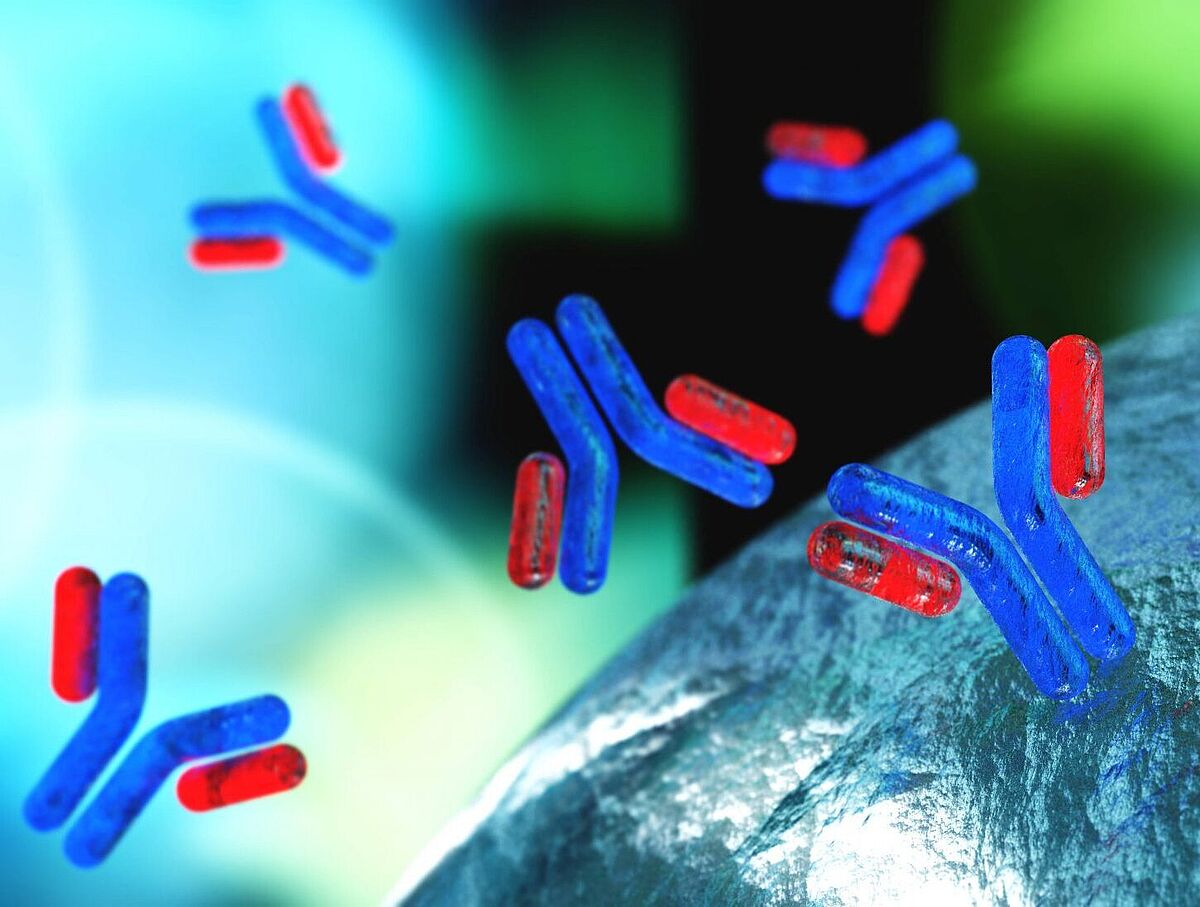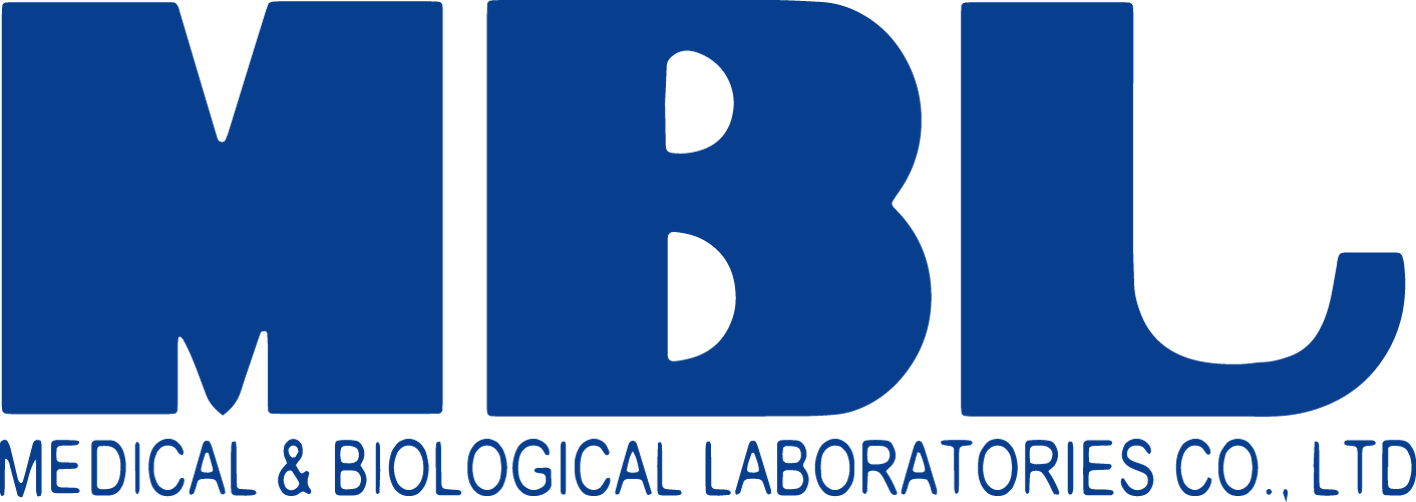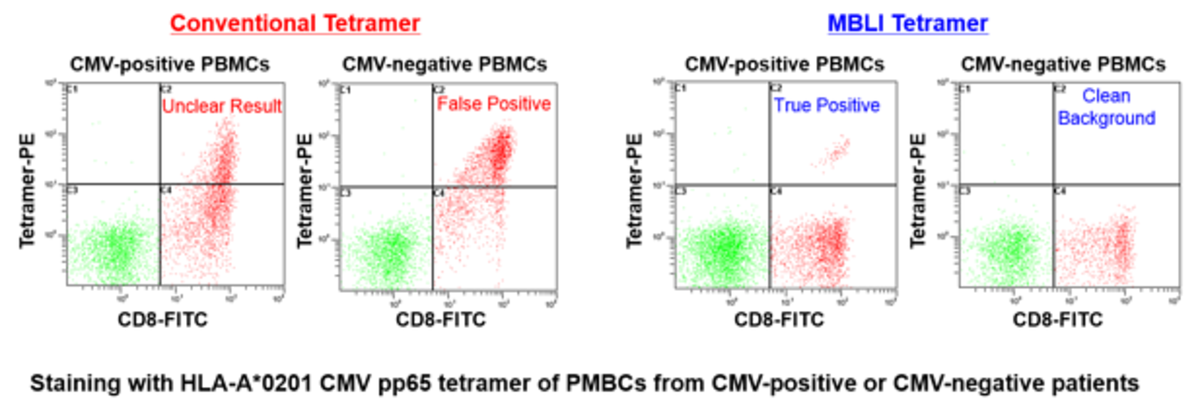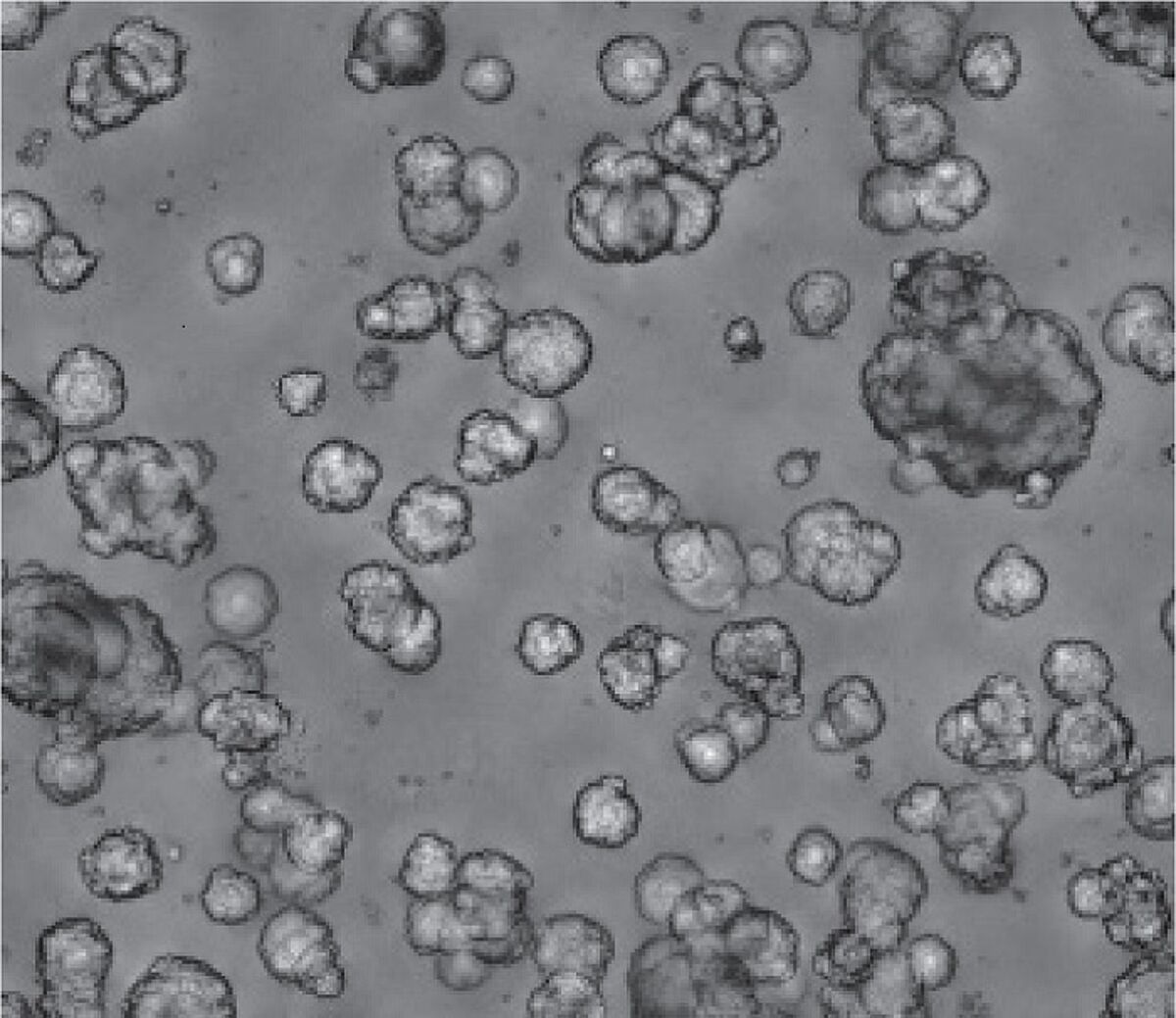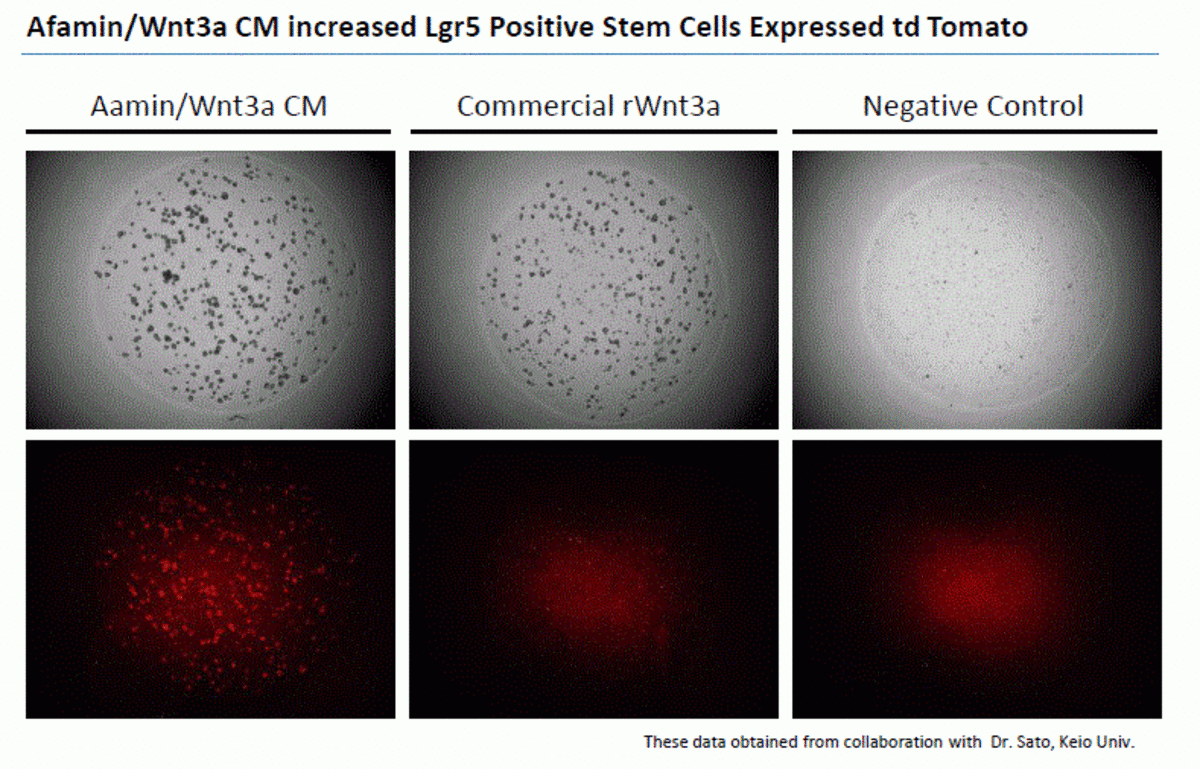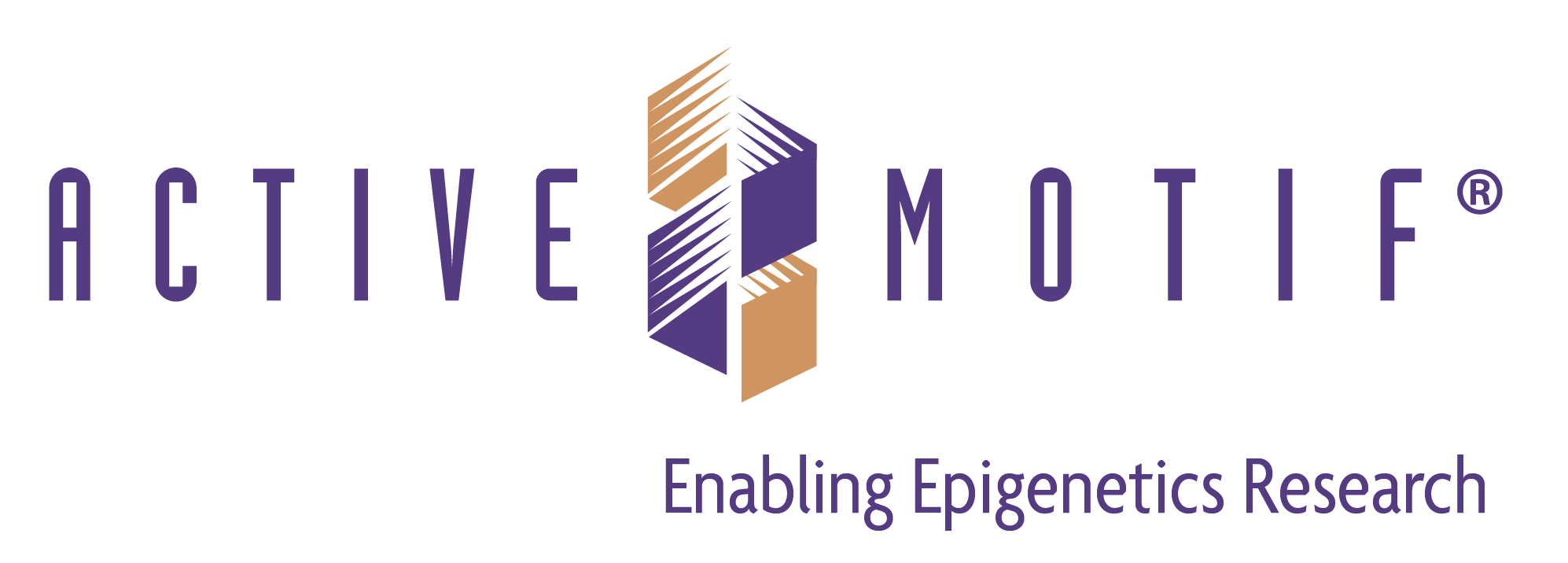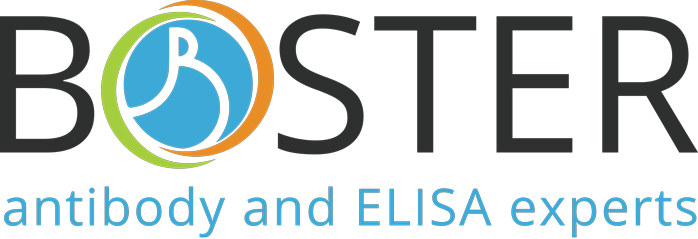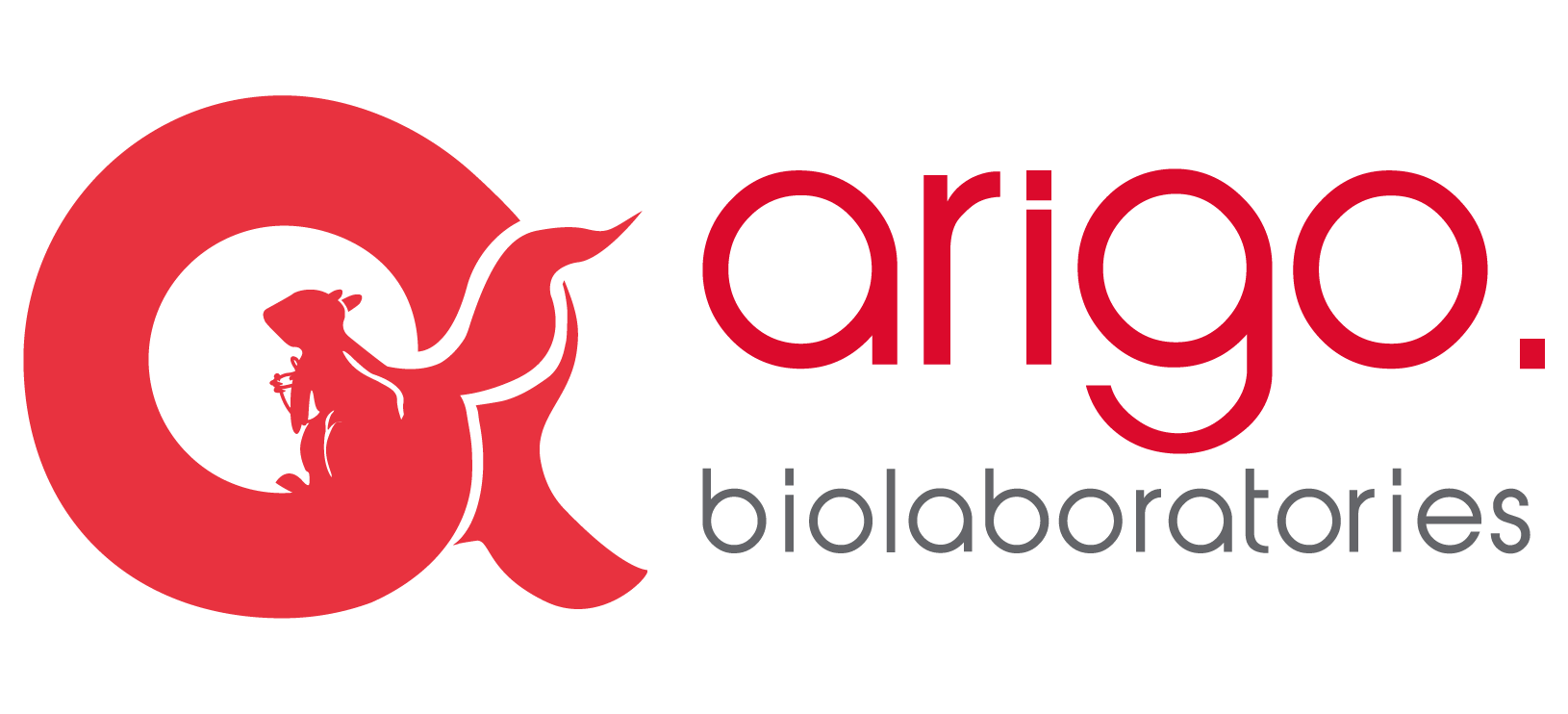MBL (formerly MBLI) is a leading life science company focused on providing solutions for researchers in the life sciences, drug discovery and development and clinical diagnostics fields. Our special emphasis is on immunology, immuno-oncology, oncology and autoimmune disease areas. As a JSR Life Sciences Company, MBL is committed to improving the probability of success, decrease timelines, and increase the efficacy of biologics-based therapies for the benefit of patients.
Their products include MHC monomers and multimers, antibodies, recombinant proteins, fluorescent proteins, and ELISA kits. Our products are highly cited and support numerous research fields relating to oncology, allergy, apoptosis, autophagy, epigenetics and neuroscience.
MBLI is known for its line of immune monitoring reagents, including MHC Tetramers and Monomers, as well as our line of QuickSwitch™ products for screening peptides and neoantigens. We help researchers to acquire reliable and reproducible immune monitoring results for the areas of immuno-oncology, autoimmune, vaccine development and more.
MHC Tetramers
MHC tetramers are composed of four monomers, each with a specific peptide. The monomers are biotinylated and held together using fluorescently-labeled streptavidin. Some researchers have found using MHC multimers with more than 4 monomers result in non-specific binding. By using MHC tetramers, binding affinity of the peptide and TCR remains high, while reducing/avoiding low non-specific binding.
The ability to quantitate a T-cell response is an important piece of information for better understanding of various questions such as efficacy of new vaccines/therapies, evaluating disease progression or clearance, and many other questions. T cell antigen receptors (TCR) recognize peptides that are expressed on antigen presenting cells. Antigen specific T cell responses can be analyzed by using MHC tetramer molecules, where each monomer is bound with a specific peptide. This method provides more robust T cell information compared to only using antibodies because the MHC tetramers will only bind to T cells that recognize the peptide sequence. Using this method, it is certain that any signal that is observed is due to a specific T cell response and not due to an overall increase in T cell presence.
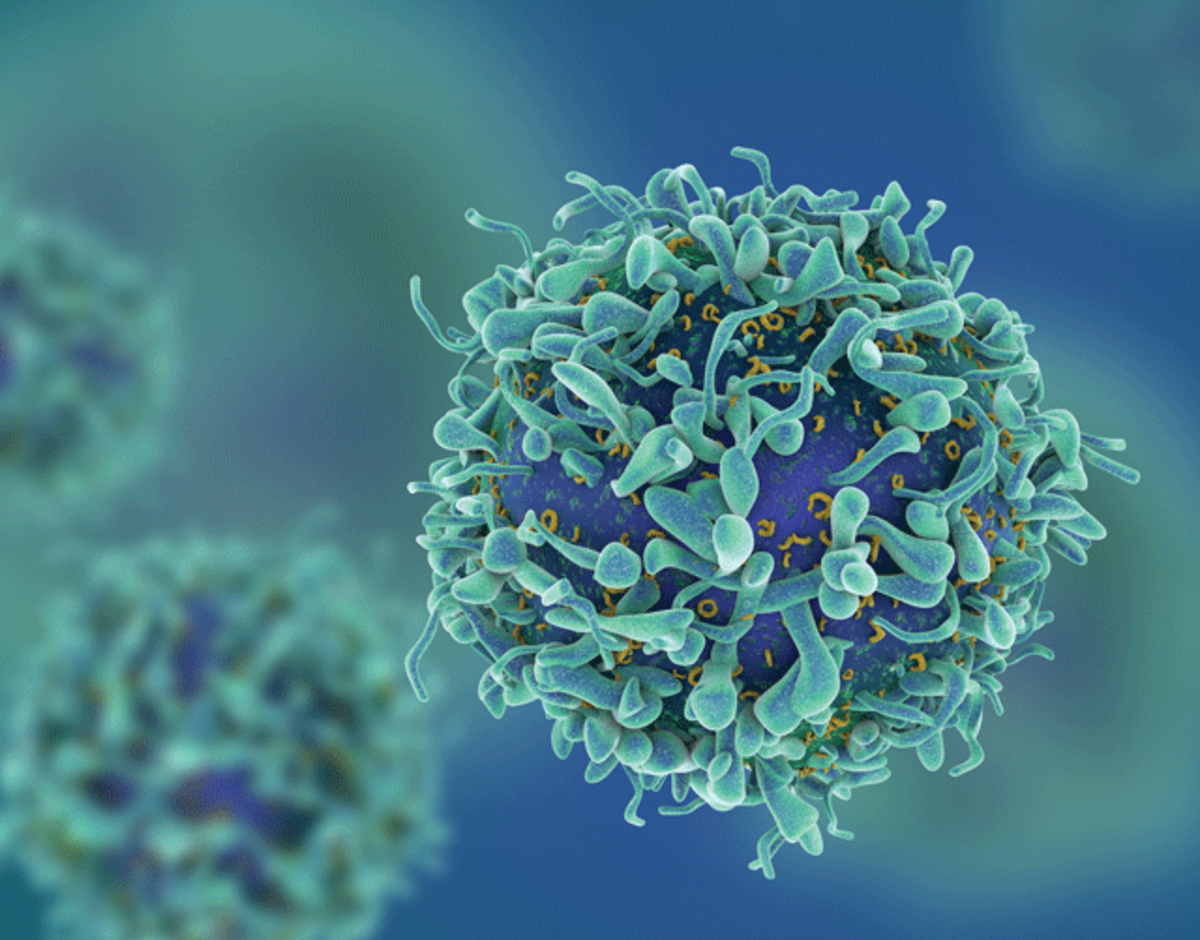
MBL tetramers have a clear advantage over academic tetramers and other commercial MHC multimer products, not only due to the reliability and high quality for every lot produced, but also due to the proprietary alpha-3 mutation. This mutation, engineered into the heavy chain of all of our human and macaque class I tetramers, helps decrease non-specific binding, leading to enhanced specificity. Check out the images below to see the details of this important technology!
MHC Tetramer Technology
MHC tetramers are immune monitoring reagents based on the Major Histocompatibility Complex (MHC) Class I/peptide complexes developed by Altman et al (Science 1996, 274: 94−96). In this seminal publication, tetrameric complexes of MHC bound to peptide were utilized as probes for the detection and quantitation of antigen-specific cytotoxic T-lymphocytes (CTL). Over the last 25 years, these reagents have become essential tools for measuring T-cell responses in basic research, clinical development, and immune monitoring in the fields of infectious disease, cancer vaccine therapy, cellular immunotherapy, transplantation tolerance, and autoimmune disease.
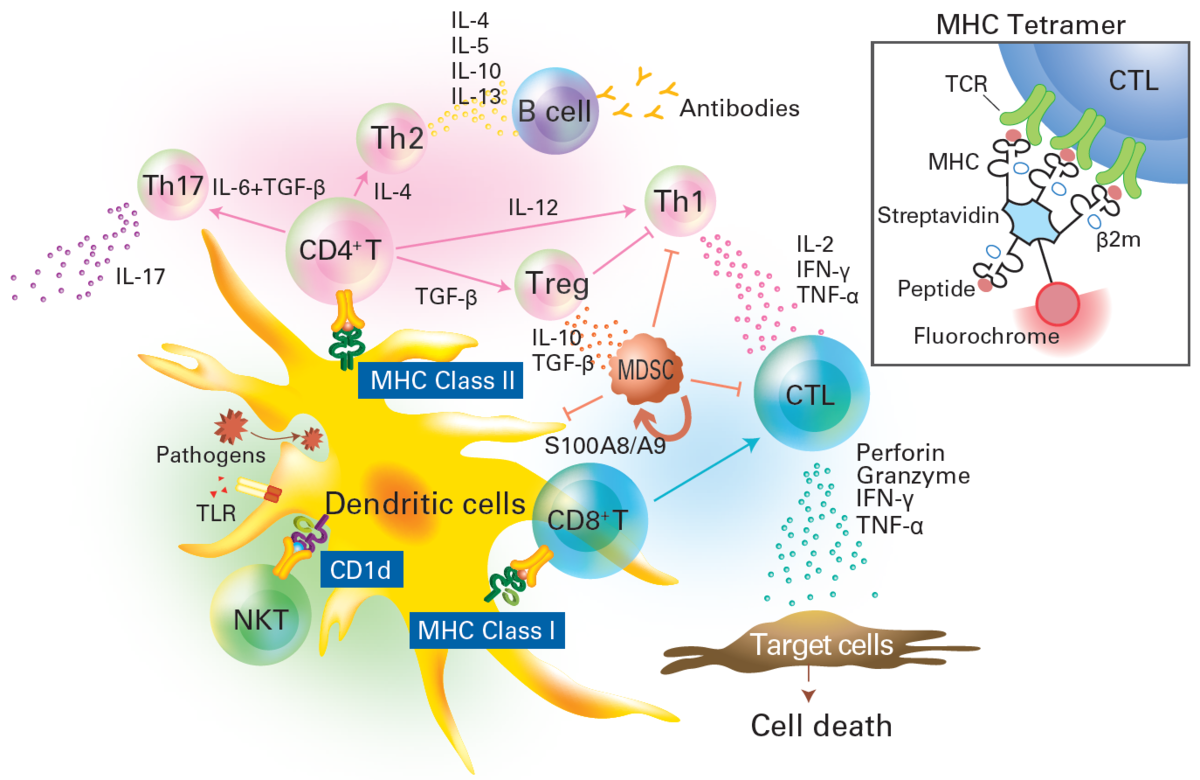
QuickSwitch Custom Tetramer Kits
Fast, High-Quality Generation of New Tetramer Specificities
Rapid, high-quality creation of custom Class I and Class II MHC tetramers in your own lab is now a reality! Create new specificity tetramers in just a few hours with QuickSwitch™, a proprietary technology for exchanging peptides on an MHC tetramer. With this kit, you will receive MHC allele with an irrelevant peptide bound. The addition of a peptide exchange factor, and your peptide of interest, results in the creation of your custom MHC tetramer ready to use- all in one day. The QuickSwitch™ Quant Tetramer Kit can quantify the exchange with the new peptide, thereby gathering binding affinity information for the MHC/peptide complex. QuickSwitch™ can be used to generate custom MHC tetramers, or to screen numerous peptides. This kit can be used for purposes such as epitope discovery, neoantigen vaccine research, verification of T cell staining using the new peptide specific tetramer, and more.
Functional screening of peptides for MHC class I binding is essential for vaccine design and immune monitoring. The QuickSwitch™ assay kit allows discrimination of MHC binding from non-binding peptides. This is particularly essential for the screening of immunogenic peptides from infectious agents or cancer neoantigens. Tetramers resulting from peptide exchange with selected peptides can then be used for immune monitoring. QuickSwitch™ kits are optimized for up to 10 peptide exchanges and multiple tests per resulting tetramer.
Publication
Read about how different methods were tested and QuickSwitch Custom Tetramer Kits had the best result.
Recombinant Afamin/Wnt3a
Wnt3a proteins are difficult to purify and store due to its strong hydrophobicity, where they aggregate and denature in aqueous solution. Storage and purification has been the major issue for the commercial Wnt3a products.
In 2016, Mihara et al. found that high Wnt3a activity can be maintained by forming a complex with Wnt3a by Afamin, which is one of the components of serum.
They found that :
- Afamin and Wnt apparently make 1:1 complex in the culture media which is highly soluble in detergent-free buffers upon isolation.
- Afamin-Wnt complex is biologically active indicating that Afamin can deliver Wnt ligands to its receptors on cell surface.
Reference: Mihara E et al. Elife. 2016 Feb 23;5:e11621
| Product Type: | Cell Culture |
| Size: | 60 µg/300 µL |
| Formulation: | 60 ug in 300 uL volume of 20 mM Tris-HCI (pH 7.4), 150 mM NaCI |
| Purity: | Greater than 90% purity as confirmed on SDS-PAGE |
Serum free conditioned medium including Wnt3a-Afamin complex for intestinal organoid cell culture is also available.
Isotype control antibodies
Isotype control antibodies are essential negative controls for in vitro and in vivo studies and can also play an important role in standard immunoassays, such as flow cytometry and immunohistochemistry (IHC). They match the characteristics of the assay’s primary antibody, but are raised against antigens known not to be present in common preclinical species such as Hen Egg Lysozyme (HEL), Keyhole Limpet Hemocyanin (KLH), etc. Therefore, they lack any relevant target antigen specificity.
Isotype Controls are an Ideal Reagent Choice for your Studies
MBL International provides a range of isotype controls, suitable for in vivo studies and immunoassays. Our controls have been carefully developed, providing a range of features, including:
- Primary antibody concentrations supplied at >4 mg/ml
- No carriers or additives - supplied in PBS only
- No cross reactivity with the species you are working with
- Very low endotoxin and high purity to ensure animal safety
In vivo Grade Isotype Control Antibodies
CrownVivo™ antibodies are functional grade isotype controls* manufactured specifically for in vivo, ex vivo, or in vitro studies requiring the highest quality products. These antibodies maintain rigid lot-to-lot specifications for reliability that you can trust. Our functional grade antibodies have been widely used in depletion, activation, neutralization, or blocking studies. All CrownVivo™ antibodies are monoclonal and use Hen Egg Lysozyme (HEL) as the immunogen. HEL is commonly used and has not been found to have cross reactivity with any known proteins. Isotype control antibodies prove the obtained results are truly significant and not due to nonspecific or non-antigen binding effects. Find the right isotype control antibody for your study by matching the host species, isotype and subclass of your primary target antibody.
